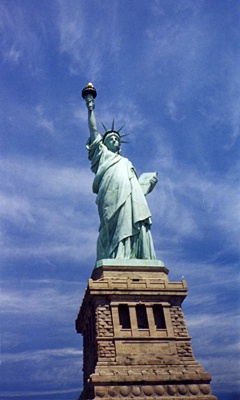All Nonfiction
- Bullying
- Books
- Academic
- Author Interviews
- Celebrity interviews
- College Articles
- College Essays
- Educator of the Year
- Heroes
- Interviews
- Memoir
- Personal Experience
- Sports
- Travel & Culture
All Opinions
- Bullying
- Current Events / Politics
- Discrimination
- Drugs / Alcohol / Smoking
- Entertainment / Celebrities
- Environment
- Love / Relationships
- Movies / Music / TV
- Pop Culture / Trends
- School / College
- Social Issues / Civics
- Spirituality / Religion
- Sports / Hobbies
All Hot Topics
- Bullying
- Community Service
- Environment
- Health
- Letters to the Editor
- Pride & Prejudice
- What Matters
- Back
Summer Guide
- Program Links
- Program Reviews
- Back
College Guide
- College Links
- College Reviews
- College Essays
- College Articles
- Back
Political Stagnation
It is not a mystery as to how the government could entirely shutdown without evoking violence and crazed riots from Americans. The simple explanation is: political party stagnation and public apathy. The evolution of our political system closely follows the needs of the people. In history, prior to the Information Age and industrialization, Americans were farmers. The economy relied on the government for tariffs, welfare, and selling of goods. The government provided sustenance. Political parties also served as modes of involvement for otherwise largely displaced immigrants from foreign nations. Even during industrialization in the late 19th century, as farmers and corporate owners grew more and more stratified, reliance on the government was critical. Farmers sought the government to protect their profits and rid of the corrupt railroad rates and middlemen. The Progressives, middle class people who sought to reform society, viewed the welfare of American life as completely dependent on the government. And so, the government did increase its involvement through eliminating trusts, implementing child labor laws and food and drug acts, advocating prohibition of alcohol, etc.
In the past, American lives were directly impacted by the government’s policies. It mattered to them whether a Democrat or Republican won, because each party’s differing policies would impact their own lives dramatically. However today, despite the large increase in population, voter turnout has decreased from 62.3% in 2008 to 57.5% in 2012.
Simply, due to technology, increased comforts, and lesser reliance on agriculture as sustenance, we Americans don’t care about what happens in the government. Many think to themselves, why do I have to vote? One vote won’t count for anything. And indeed, perhaps it wouldn’t due to the Electoral College. Moreover, the difference between the candidates is so slim and nominal—it would have no effect on American lives.
Political parties are not as they were before. Today, they cater to people. Republicans, the more conservative party, receives a significant amount of votes by appealing to the poor in the Appalachians. Omitting information and emphasizing other points easily wins votes. The Democratic Party also blatantly caters to its audiences. The importance of the two parties is their differing policies—two sides of the extremes. However, reality is not an extreme; most Americans are moderates. And when we are dissatisfied with both parties, we simply don’t vote.
Too many Americans are sheltered from the effects of the government. We let it get away with shutting down the government, putting the (both national and international) economy on the line, and keeping Congressmen’s jobs—the same Congress whose approval rate is at an all-time low of 10%. Because politicians and the government continue to feed distorted truths and contradicting policies, because Americans are living in provincial worlds—the government has nothing to fear. How likely is it that the lower class, those at the bottom of the social pyramid, will rise up and create a mass riot? In the past, the upper class has feared the revolts from masses. Today, no one thinks such rudimentary things like a full-scale riot could happen. Politicians simply take Americans as (in crude terms) stupid or apathetic.
As a simple thought experiment, what would happen if America really did fall off the fiscal cliff and defaulted? While the economy’s collapse is not a good thing, but it would directly impact all of Americans’ lives—perhaps enough so that Americans would abandon all of their political party affiliations and reform the government. Maybe then the government would really be for “We the People”.

Similar Articles
JOIN THE DISCUSSION
This article has 0 comments.
